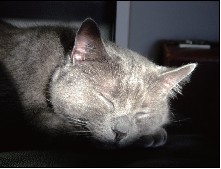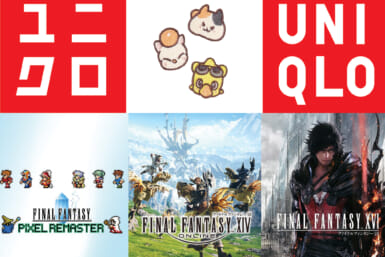by Danielle Rippingale
We see them strutting around in the latest fashions and being pampered in salons everywhere in Tokyo. You know who I’m talking about—the dogs of Tokyo! With falling birth rates, and pet ownership rising to more than 23 million in Japan, this $10 billion a year industry makes a worthy topic for environmental consideration.
You may eat and wear organic, cycle around Tokyo, and make gallant efforts to reduce what you consume, but does your green lifestyle include your pet? Our pets live in the same environment as us and are affected by the decisions we make, whether it is the quality of food or the cleaning products (home and body) we use. Your pets can benefit as much as you do by living a healthy, green lifestyle. Consider these steps:
Buy quality food in bulk. Pet shops in Tokyo can often order larger bags of food for you, minimizing packaging waste and trips to the store, and saving you money. Avoid pet foods that are highly processed, use protein fillers, and have high amounts of preservatives. Instead, buy from companies that are primary processors of ingredients rather than those that using by-products from the meat and agriculture industry. Some brands use organic ingredients, promoting a healthy earth and pet, and reducing susceptibility to diet-related sensitivities. For the DIY crowd, consider making your own pet food using the following rule of thumb: 40 percent protein, 30 percent vegetable, and 30 percent carbohydrate. For more on this topic see www.wikihow.com/Choose-Healthy-Dog-Food.
Innova dog and cat food is available in quality pet stores and can be ordered in a large 7.5kg size—just ask! Pets Promise (USA) offers dog & cat foods that are available online from Japan-based Foreign Buyers Club (www.fbcusa.com).
For pet waste, a composter is ideal, but this solution is not feasible unless you have a yard. For those who have accumulated plastic shopping bags, reuse them for picking up doggie waste rather than trashing them. The problem of course is that the bag will remain in the landfill until it decomposes. If you are a tote-using family and looking to buy poop bags, try biodegradable ones.
For cats, buy biodegradable and flushable kitty litter. Rather than emptying the entire pan, you can scoop the solid waste out and just scatter the wet litter around in the pan until you need to change it. The pine pellets variety lasts a long time, is low toxin (unlike clay that risks silica dust inhalation), economical, easy to flush, made from timber by-products, and is readily available in pet shops and supermarkets in Japan. For the eco-savvy and patient, the best option is to train your cat to use the toilet—yes, your toilet and yes, it is possible. I have done it myself with an adult cat and there are kits (not necessary) and many online resources, such as www.karawynn.net/mishacat/toilet.html.
Just like our own haircare products, you’d be surprised by the amount of toxic chemicals found in pet shampoos. Aubrey Organics Dog Shampoo and Crème Rinse offer a natural and safe alternative (available at Natural Mart in Hiroo and Tokyu Hands, ¥1,890).
If you have outdoor pets, fleas and ticks can be a nuisance and also carry diseases that affect your pet’s health. Treat these concerns using preventative care and natural solutions. Too many insecticide soaps and sprays are toxic to your pet, you, and the environment. Instead, use natural methods like regular combing, bathing, and vacuuming. For dogs, adding garlic and brewer’s yeast to food can control fleas. For more information visit www.greenpaws.org/products.php.
Missed it? The chemical-free cleaning recipes featured in Tokyo-Eco May 1st are all pet-friendly. Visit www.weekenderjapan.com to see the online edition.
Sadly, it is reported that 1,000 cats and dogs are put down every day in Japan shelters. Contact Tokyo ARK to learn more about pet ownership in Japan and to adopt (www.arkbark.net).
ECO FACT: Japanese are generally against the idea of neutering because they feel it is unnatural or goes against nature.
GREEN GLOSSARY: Against Animal Testing. Also ‘cruelty free’ and ‘not tested on animals.’ Used to identify cosmetic and household product companies that do not test lethal doses of their products (chemicals) on animals. Look for ‘no animal testing’ logos certified by the Coalition for Consumer Information on Cosmetics (www.leapingbunny.org) or PETA.org, which offers cruelty-free shopping guides.










